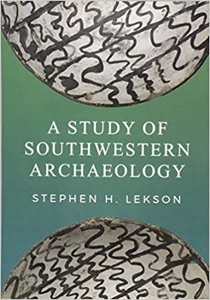A Study of Southwestern Archaeology
(Previous notes here)
I needed Stephen Lekson’s email because I wanted to ask a favor. That led me to emails in which I’d asked a previous favor, and his generous (and patient) answers led, in turn, to a holiday weekend rereading of this fine book. It’s a study of a discipline: Southwestern Archaeology as an enterprise or a vocation, rather than the pre-history of the people who lived in the region that would someday become the American Southwest. That’s a different book (into which I also enjoyed a pleasant Memorial Day plunge.)
I turned to Lekson in part because I’ve been reading a biography of Kurt Gödel in order to get a better understanding of a foundational question: what did the founders of computer science think they were doing? One thing they were not doing was metaphysics: one of the coffeehouse seminars had a fellow who would bang the table whenever someone said anything metaphysical. Lekson’s fight for History against Théorie is, I think, an echo of the dilemma in which serious thinking about computation and the mind has caught itself: we cannot do what we do without a belief in structure, but we can also problematize that belief until paralysis sets in.
Lekson is, I think, the great stylist of his generation. He crafted an approach to academic writing that is precise but accessible, allusive yet open, rigorous but light on its feet. An important facet in this achievement is his embrace of footnotes, which he uses to great effect. At one point in A Study Of Southwestern Archaeology, he reports that some students read two copies of his earlier A History Of The Ancient Southwest at once: one copy open to the text and a second copy open to the footnotes. That’s an excellent idea. (Beware: the Kindle edition assumes that footnotes consist of a single paragraph, and that’s not necessarily the case; insist on visiting all the footnotes.)
